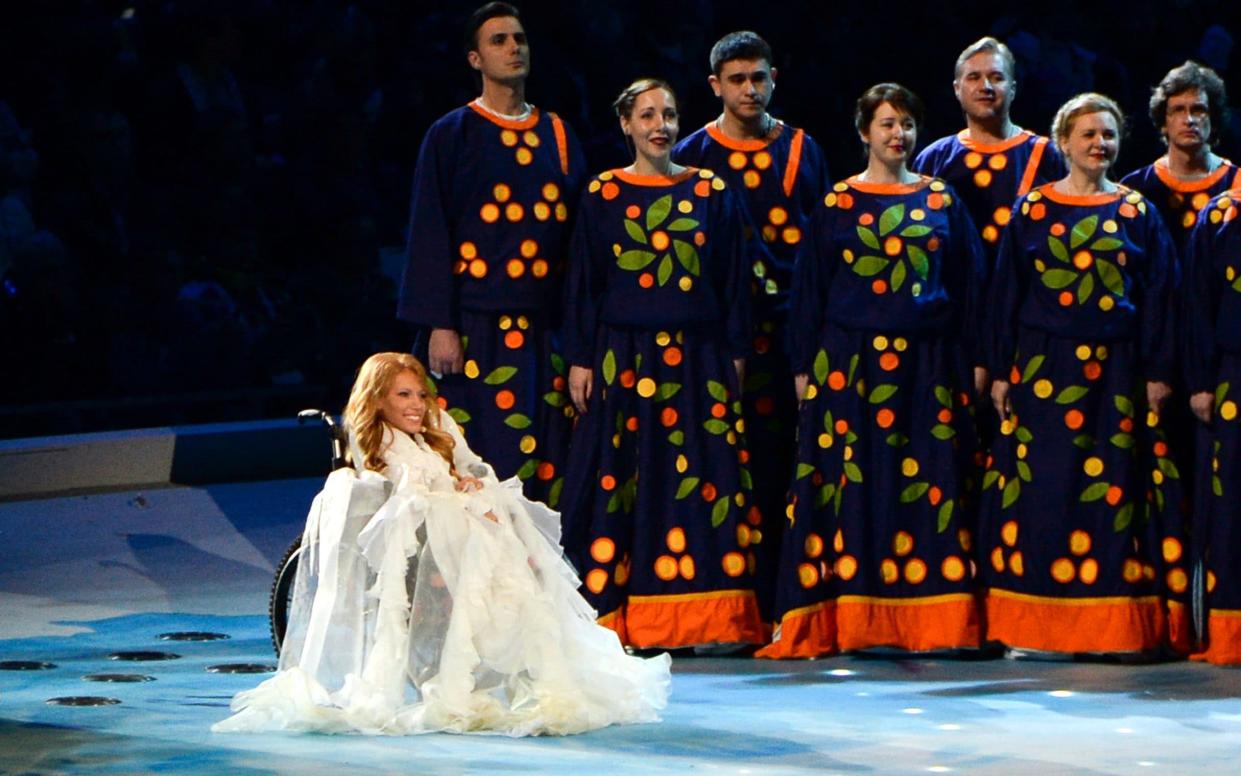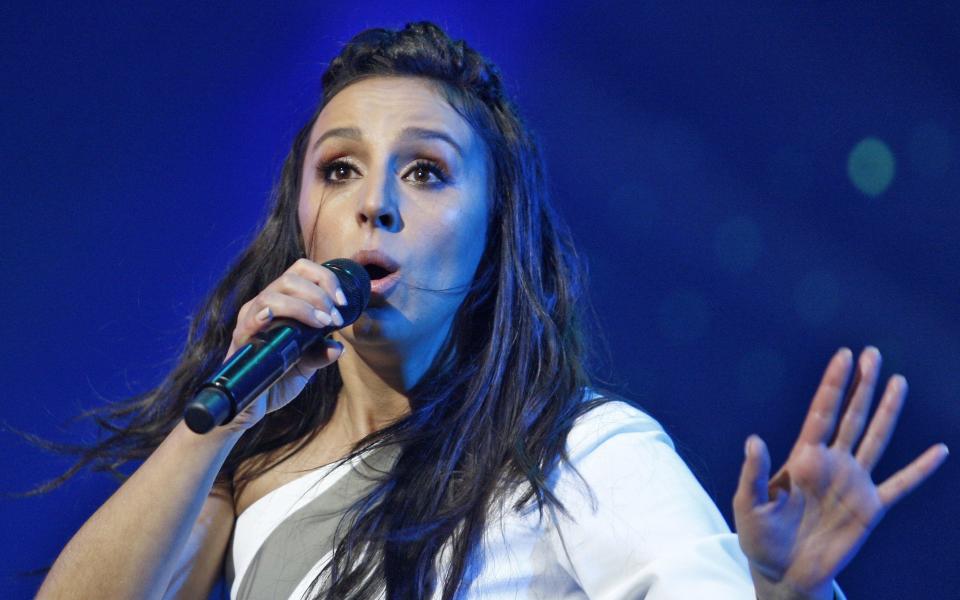Ukraine bans Russia's entrant to Eurovision song contest

Ukraine has barred Russia's contender in the 2017 Eurovision Song Contest from entering the country for three years, effectively banning her from the final in Kiev next month.
The Ukrainian Security Service (SBU) said on Wednesday that Yulia Samoylova had been subject to an entry ban for breaking Ukrainian law.

"The Security Service of Ukraine has banned the citizen of the Russian Federation Yulia Samoylova from entering the country for a period of three years," Olena Gitlianska, an SBU spokesman, wrote on Facebook on Wednesday.
She did not say which laws Ms Samoylova broke, but the ban is believed to be related to the wheelchair-bound singer's performance at a concert in Crimea in 2015.
Russia annexed Crimea from Ukraine in 2014 and considers the peninsular its sovereign territory.
Ukraine considers Crimea illegally occupied territory and reserves the right to impose a travel ban on anyone who visits it without obtaining appropriate permission from Kiev first.
Miss Samoylova, 27, was selected as Russia's entry for Eurovision by Russia's state-owned Channel 1 earlier this month.

Her entry for this year’s competition is called Flame is Burning.
Earlier Ukrainian officials suggested the singer, who has suffered spinal muscular atrophy since she was a teenager, would be allowed to perform provided she did not publicly voice support for the annexation.
Eurovision 2017 will be held in Kiev between May 9 and 13.
Ukraine won the right to stage the 62nd Eurovision song contest after its contender won the 2016 competition.
The usually kitsch song contest took on major political overtones in 2016, when Jamala, the Ukrainian contestant, squared off against Russia’s Sergei Lazarev.
In the end Crimean Tatar singer Jamala won with 531 points for “1944,” a song about Stalin’s wartime deportation of the Tatars that many saw as a jab at Russia. Mr Lazarev came third with 491 points.
Her victory was greeted with outrage by the right-wing Russian press and prompted some officials to call for a boycott of the 2017 contest.
Eurovision: The last 10 years' winners

 Yahoo News
Yahoo News 
